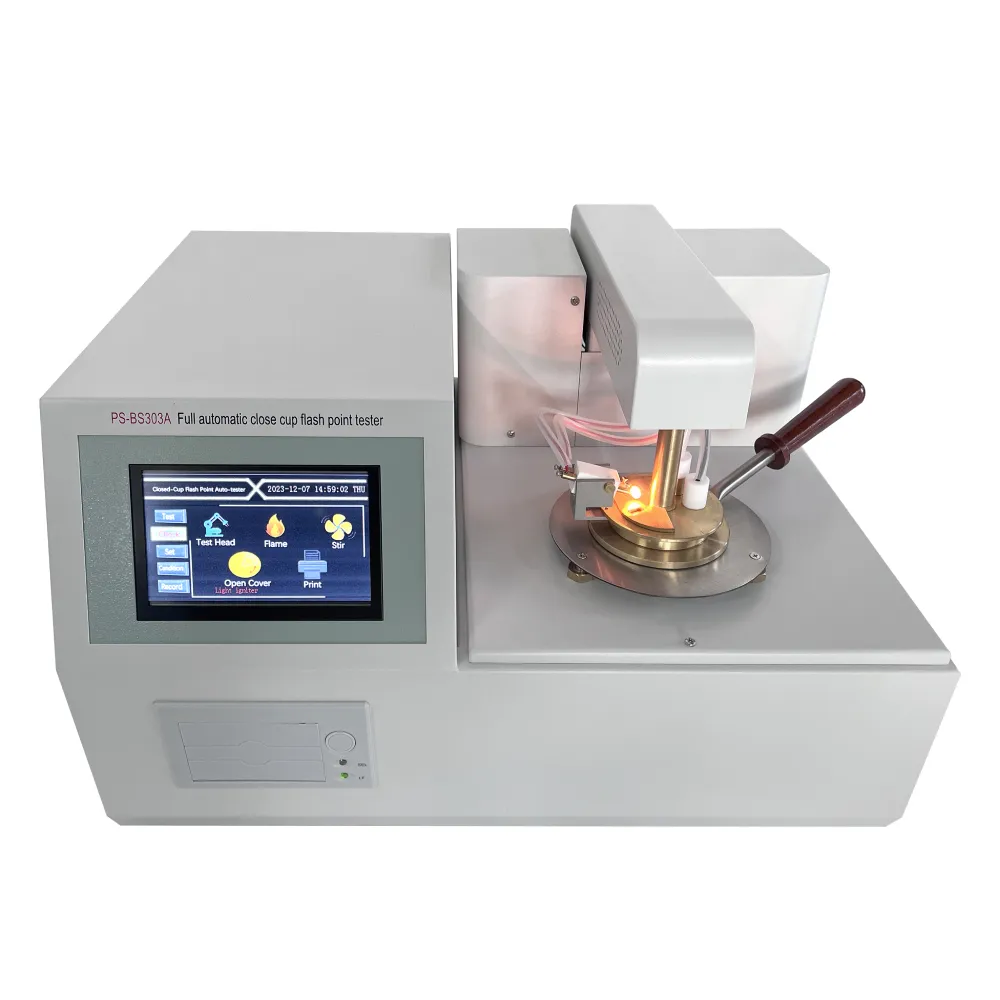 English
English


Engine Oil Quality Tester for Optimal Performance Analysis and Maintenance Insights
Understanding Engine Oil Analyzers A Key to Vehicle Maintenance
Engine oil is the lifeblood of any vehicle, playing a crucial role in ensuring optimal performance and longevity. Regularly analyzing engine oil is essential for effective vehicle maintenance, and this is where engine oil analyzers come into play. These advanced tools provide valuable insights into the condition of engine oil, helping vehicle owners and maintenance professionals make informed decisions about oil changes and overall engine health.
An engine oil analyzer is a device that examines the physical and chemical properties of engine oil, identifying contaminants and determining its overall quality. The analysis typically involves several key tests, including viscosity measurement, particulate contamination, and the detection of wear metals. By understanding the results of these tests, vehicle owners can gauge whether their engine oil is still effective or if it needs to be changed.
One of the primary functions of an engine oil analyzer is to measure the viscosity of the oil. Viscosity is crucial because it determines how well the oil flows and lubricates engine components. As oil ages and endures thermal breakdown, its viscosity can change, leading to inadequate lubrication. An engine oil analyzer can indicate whether the oil's viscosity is within acceptable ranges, helping to prevent engine wear and potential failures.
Another important aspect of engine oil analysis is the detection of wear metals. Over time, metal particles from engine components can contaminate the oil, signaling wear and tear within the engine itself. An engine oil analyzer can identify these metals, such as copper, iron, and lead, offering insight into the overall health of the engine. For instance, a high concentration of iron could indicate issues with the engine's bearings or cylinder walls, while elevated copper levels may suggest problems with the heat exchangers.
engine oil analyzer

Particulate contamination assessment is another vital function of an engine oil analyzer. It examines the presence of dirt, soot, and other foreign particles in the oil. Contaminants can adversely affect the oil's ability to lubricate and protect engine parts. Identifying and quantifying these contaminants allows for targeted maintenance efforts, ensuring that the engine remains in optimal operating condition.
One of the most significant advantages of using an engine oil analyzer is cost-effectiveness. Regular oil analysis can lead to extended oil change intervals, reducing the frequency of oil replacement. This not only saves money on oil purchases but also contributes to a more sustainable approach by minimizing waste. Furthermore, early detection of engine issues can prevent costly repairs down the line, making oil analysis a wise investment for vehicle owners.
In addition to regular use in passenger vehicles, engine oil analyzers are also widely used in commercial fleet management. Fleet managers rely on oil analysis to extend the lifespan of their vehicles and improve operational efficiency. By implementing a routine oil analysis program, fleets can achieve better fuel economy and reduce downtime, ultimately enhancing profitability.
In conclusion, engine oil analyzers are indispensable tools for maintaining engine health. By providing critical data on oil condition, viscosity, wear metals, and contamination levels, these analyzers empower vehicle owners and maintenance professionals to make informed decisions. Regular oil analysis not only enhances engine performance but also saves money and contributes to a more sustainable approach to vehicle maintenance. Investing in an engine oil analyzer could be one of the best decisions for vehicle longevity and efficiency.
-
Differences between open cup flash point tester and closed cup flash point testerNewsOct.31,2024
-
The Reliable Load Tap ChangerNewsOct.23,2024
-
The Essential Guide to Hipot TestersNewsOct.23,2024
-
The Digital Insulation TesterNewsOct.23,2024
-
The Best Earth Loop Impedance Tester for SaleNewsOct.23,2024
-
Tan Delta Tester--The Essential Tool for Electrical Insulation TestingNewsOct.23,2024





